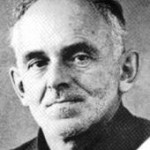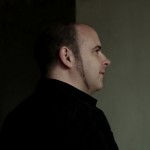Three poems by Joachim Sartorius translated by Pauline Fan
Stambul
by Joachim SartoriusHeruntergekommen
sieht der Mond aus
durch das lange Rohr
auf wackligem Stativ,
aufgestellt am Rand des Taksim-Platzes;
aber der Blick kostet nur 500 Lira,
der Mann dreht an Rädern,
du beugst dich über eine kleine Linse
und siehst ihn, nah,
weiß und kühl, Krater und Täler,
selbst den schwarzen Fleck de beauté –
heruntergekommen etwas,
aber nicht halb so schäbig und wirklich
wie der Taksim mit seinem Verkehr,
den verwelkten Büchern auf staubigen Ständern
und klingelnden Mandelverkäufern.
Du gehst in den Menschen über den Platz.
Die Oleanderbüsche stehen
in ihrem runden Schatten
unter dem Neonlicht.
Der Mond ist klein, eine helle Scheibe
ohne Relief im Dunst der Sommernacht.
Nur du weißt, wie er aussieht,
ohne Leben,
präzis weiß und kühl, fast blau.
Stambul
by Joachim SartoriusThe moon looks
the worse for wear
through the long cylinder
on a shaky frame
set up at the edge of Taksim Square;
but the view costs just 500 lira,
the man swivels the wheels,
you bend over a small lens
and see it, near,
white and cool, craters and valleys,
even its black mark de beauté–
somewhat the worse for wear,
yet not nearly as shabby or real
as Taksim and its traffic,
the withered books on dusty racks,
the noisy almond vendors.
You walk across the square through the crowd.
Oleander bushes bask
in circular shadows
under halos of neon.
The moon is small: a bright disc
without contour in the haze of summer night.
You alone know what it looks like,
lifeless,
precisely white and cool, almost blue.
translated from German by Pauline FanTscherkassy
by Joachim SartoriusVor dem Hotelfenster der Dnjepr,
ein Meer mit weißen Sandbänken.
Im Hotelzimmer
über akkurat durchgeschlagenen Kissen
eine Birkenallee im Winter, in Öl,
wie ich sie heute hundertmal gesehen habe,
ohne zu ermüden,
in einem flachen, rückständigen Land,
von Kriegen heimgesucht, friedlich heute,
von einer Stille, die die Sprache der Frösche
und der Störche noch stiller macht.
Keine Schiffe auf dem Dnjepr. Ich
führe so gerne hinunter nach Odessa,
wo es fröhlich ist, pontisch hell,
mit Frauen und anderen Alleen
und irrenden Wolken, spiritblau.
Cherkasy
by Joachim SartoriusOutside the hotel window the Dnieper,
a sea with white sandbanks.
In the hotel room,
above accurately disheveled pillows
a birch-lined boulevard in winter, in oil,
as I have seen today a hundred times
without tiring,
in a flat, backward land
plagued by war, peaceful today
with a silence that renders the language of frogs
and storks more silent still.
No ships on the Dnieper. How I
would like to go down to Odessa,
where it is cheerful, Pontic-bright,
with women and other boulevards
and errant clouds, spirit-blue.
translated from German by Pauline FanFruchtfleisch
by Joachim SartoriusZuerst sterben die Augen, dann die Hand
in diesem Sommerherbst, dann der übrige Körper.
An der linken Hüfte nun tiefere Muskellagen,
feinkörnige Schichten, papierähnlich.
Darüber die eingesunkene Brust,
darüber ein Zimmervoll Zähne.
Ruinös alles, Dreck und Skelett.
Aber die Haut zart noch, wie Blütenblatt von Mohn.
Nur nicht der Sonne aussetzen, den Schirm
aufspannen, plötzlich besorgt.
Dreizehn Granatäpfel rollen auf dich zu.
Warum auch nicht? Wir wollen Fruchtfleisch,
Rubine, die ganze Fülle vor dem Stoßgebet.
Fruit Pulp
by Joachim SartoriusThe eyes are the first to die in this summer-autumn,
then the hand, then the rest of the body.
At the left hip now deeper layers of muscle,
Fine-grained strata, paper-like.
Above it the chest, caved in,
above it a room full of teeth.
Everything ruinous – filth and skeleton.
But the skin delicate still, like petals of poppy.
Above all, don’t expose it to the sun: spread open
the parasol, suddenly anxious.
Thirteen pomegranates rolling towards you.
And what of it? We want fruit pulp, rubies,
abundance before the fervent, final prayer.
translated from German by Pauline Fan



